-
 Bitcoin
Bitcoin $116700
0.24% -
 Ethereum
Ethereum $3973
4.34% -
 XRP
XRP $3.283
7.68% -
 Tether USDt
Tether USDt $1.000
0.01% -
 BNB
BNB $789.8
2.27% -
 Solana
Solana $176.2
3.31% -
 USDC
USDC $0.9999
0.00% -
 Dogecoin
Dogecoin $0.2238
5.14% -
 TRON
TRON $0.3389
-0.51% -
 Cardano
Cardano $0.7907
4.03% -
 Stellar
Stellar $0.4527
10.02% -
 Hyperliquid
Hyperliquid $41.07
4.27% -
 Sui
Sui $3.794
1.77% -
 Chainlink
Chainlink $19.49
10.40% -
 Bitcoin Cash
Bitcoin Cash $580.9
0.74% -
 Hedera
Hedera $0.2617
4.32% -
 Avalanche
Avalanche $23.41
3.67% -
 Ethena USDe
Ethena USDe $1.001
-0.03% -
 Litecoin
Litecoin $122.4
1.38% -
 Toncoin
Toncoin $3.364
1.49% -
 UNUS SED LEO
UNUS SED LEO $8.988
0.37% -
 Shiba Inu
Shiba Inu $0.00001295
2.82% -
 Uniswap
Uniswap $10.62
5.75% -
 Polkadot
Polkadot $3.922
4.46% -
 Dai
Dai $1.000
0.01% -
 Bitget Token
Bitget Token $4.494
2.15% -
 Monero
Monero $268.0
-1.30% -
 Cronos
Cronos $0.1523
3.68% -
 Pepe
Pepe $0.00001127
4.43% -
 Aave
Aave $285.4
4.85%
How to use the unified account system on OKX
OKX's unified account system integrates spot, margin, futures, and options into one seamless platform, boosting capital efficiency with shared collateral and real-time risk tracking.
Aug 09, 2025 at 01:36 am

Understanding the Unified Account System on OKX
The unified account system on OKX is a comprehensive trading infrastructure that consolidates various trading functions—such as spot, margin, futures, and options—into a single account. This integration eliminates the need for users to manually transfer funds between isolated wallets for different trading types. Instead, users can allocate their assets dynamically across multiple products using a shared collateral pool. This system enhances capital efficiency and simplifies the user experience by providing a centralized view of all positions and balances.
When you activate the unified account, your available balance is calculated based on your total assets, including stablecoins, major cryptocurrencies, and supported tokens. These assets are evaluated in real-time and used as cross-margin collateral. This means that if you hold USDT, BTC, or ETH, they can all contribute to your margin requirements across different trading pairs and instruments. The system automatically calculates your risk level and adjusts margin usage accordingly.
How to Enable the Unified Account on OKX
To begin using the unified account system, you must first activate it through your OKX account settings. This process is straightforward but irreversible under certain conditions, so users are advised to understand the implications before proceeding.
- Log in to your OKX account via the web platform or mobile app
- Navigate to "Assets" in the top menu
- Click on "Account Type" or "Account Management"
- Select "Unified Account" from the available options
- Review the terms and confirm activation
Once activated, your previous isolated account structures (such as separate spot and futures wallets) will be merged. All existing positions and orders will be carried over into the new structure. You will immediately gain access to features like cross-product margining and real-time portfolio risk assessment.
It is important to note that switching back to a classic (non-unified) account may not be allowed if you have open positions or pending orders. Ensure all trades are settled before attempting to revert, if such functionality is supported.
Managing Assets and Collateral in the Unified System
One of the key advantages of the unified account is the ability to use a wide range of assets as collateral. Unlike traditional systems that restrict margin trading to specific currencies, OKX allows eligible tokens to serve as margin across multiple products.
- Go to the "Trading" section and select any market (e.g., BTC-USD-SWAP)
- Open a position using cross-margin mode
- The system will automatically include your holdings in BTC, ETH, USDT, and other approved assets in the collateral calculation
- View your total collateral value and maintenance margin in the risk management panel
The platform uses a real-time mark price and index-based valuation to determine the worth of each collateral asset. Some tokens may have lower collateral weights due to volatility. For example, a highly volatile altcoin might only count as 50% of its market value toward your margin, while BTC may count at 97%. These weights are set by OKX to manage systemic risk.
You can monitor your available margin, used margin, and liquidation price in the unified dashboard. This transparency allows traders to make informed decisions about position sizing and risk exposure.
Executing Multi-Product Trades Within the Unified Account
The unified account enables seamless trading across different financial instruments without fund transfers. For instance, you can hold a BTC perpetual contract while simultaneously placing a spot order for ETH and an options trade on SOL, all using the same asset base.
- Open the "Trade" interface and select the desired product (e.g., Futures)
- Choose a contract such as BTC-USD-SWAP
- Place a long or short order using cross-collateral margin
- Switch to the Spot tab without leaving the page
- Buy or sell another cryptocurrency using the same wallet balance
All positions are reflected in the portfolio overview, where you can see aggregated profit and loss, unrealized gains, and funding payments. The system also supports simultaneous hedging, allowing you to hold both long and short positions in the same underlying asset. This is particularly useful for advanced strategies like market making or volatility arbitrage.
Orders are executed with low latency, and the unified risk engine continuously recalculates your margin ratio. If your equity drops below the maintenance threshold, you will receive a margin call or face liquidation.
Configuring Risk Management and Notifications
Effective risk control is critical when using a unified account due to the interconnected nature of positions. OKX provides tools to help users monitor and manage exposure.
- Access the "Risk Management" section under the trading interface
- Set custom alerts for margin ratio levels (e.g., 20%, 10%)
- Enable push and email notifications for liquidation risks
- Review the stress test simulator to estimate portfolio performance under extreme market moves
You can also define auto-deleveraging protection settings and adjust your leverage per product. While the unified account allows up to 125x leverage on certain contracts, you can manually cap it to reduce risk. These settings apply dynamically across all active positions.
Additionally, the portfolio margin mode (if available) offers further optimization by considering correlation between assets. For example, long BTC and short ETH positions may offset some risk, resulting in lower margin requirements compared to holding them in isolation.
Troubleshooting Common Unified Account Issues
Users may encounter specific issues when transitioning to or operating within the unified account system. Understanding these can prevent operational disruptions.
If you notice missing balances, verify that all sub-accounts have been merged. Sometimes legacy funds in dormant wallets require manual claiming. Navigate to "Assets" > "Sub-Account Management" to consolidate.
In cases where orders are rejected, check your current margin ratio and collateral eligibility. Certain tokens may be excluded from margin use during high-volatility events. You can view the list of supported collateral assets in the "Finance" > "Collateral" section.
For login or activation errors, ensure your account has completed KYC verification. The unified account feature may be restricted for unverified users. Clear your browser cache or update the mobile app if interface elements fail to load.
Frequently Asked Questions
Can I use the unified account without enabling margin trading?
Yes. The unified account functions as a default trading environment even if you only perform spot trades. You are not required to open leveraged positions. All features remain accessible, and your assets are still pooled for ease of use.
Does the unified account support fiat deposits and withdrawals?
Fiat transactions are processed through the "Fiat & Spot" wallet, which is integrated into the unified system. You can deposit EUR, USD, or other currencies via bank transfer or card and convert them to crypto directly within the unified interface.
Are there any fees associated with switching to the unified account?
No. Activating the unified account is completely free. OKX does not charge any conversion, transfer, or migration fees during the transition from a classic account structure.
How is interest calculated on borrowed assets in the unified system?
If you engage in margin trading, interest is charged on the borrowed amount and calculated per second. Rates vary by asset and are displayed in the "Borrow" section. Repayment occurs automatically when you close positions or transfer out funds.
Disclaimer:info@kdj.com
The information provided is not trading advice. kdj.com does not assume any responsibility for any investments made based on the information provided in this article. Cryptocurrencies are highly volatile and it is highly recommended that you invest with caution after thorough research!
If you believe that the content used on this website infringes your copyright, please contact us immediately (info@kdj.com) and we will delete it promptly.
- Coinbase, Cosmos, and dYdX: Navigating the Crypto Currents
- 2025-08-09 06:30:16
- BNB Price, Altcoins, and Predictions: What's the Buzz?
- 2025-08-09 06:30:16
- Crypto Presale Projects Primed for Gains in 2025: A New Yorker's Take
- 2025-08-09 06:50:15
- Ruvi AI: The Millionaire Maker Poised for a Price Spike?
- 2025-08-09 06:50:15
- Cold Wallet, CoinMarketCap, Cardano & XRP: Navigating Crypto's Next Big Wave
- 2025-08-09 07:10:15
- Hedera (HBAR) Price Surge: Market Cap Soars, What's Next?
- 2025-08-09 07:10:15
Related knowledge
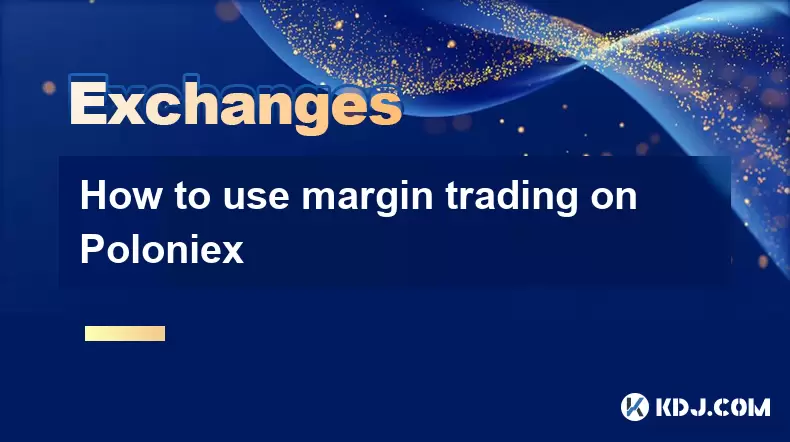
How to use margin trading on Poloniex
Aug 08,2025 at 09:50am
Understanding Margin Trading on Poloniex
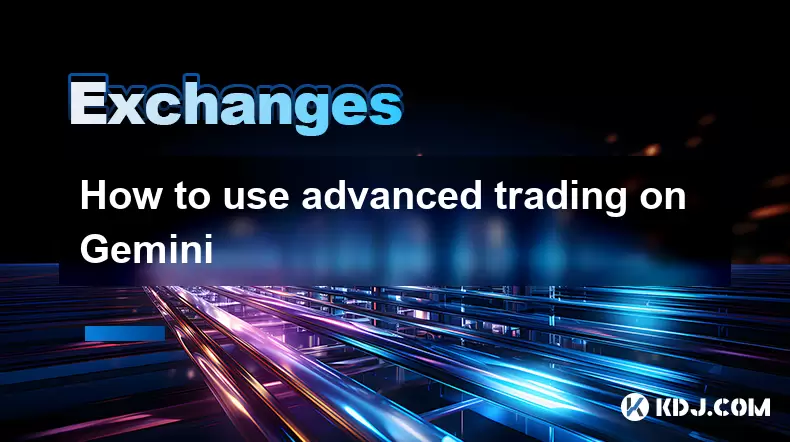
How to use advanced trading on Gemini
Aug 08,2025 at 04:07am
Understanding Advanced Trading on GeminiAdvanced trading on Gemini refers to a suite of tools and order types designed for experienced traders who wan...
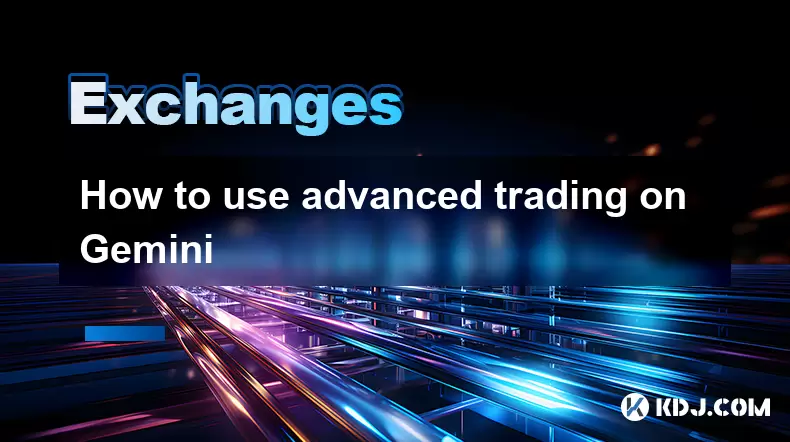
How to use advanced trading on Gemini
Aug 08,2025 at 10:56pm
Understanding Advanced Trading on GeminiAdvanced trading on Gemini refers to the suite of tools and order types available on the Gemini ActiveTrader p...
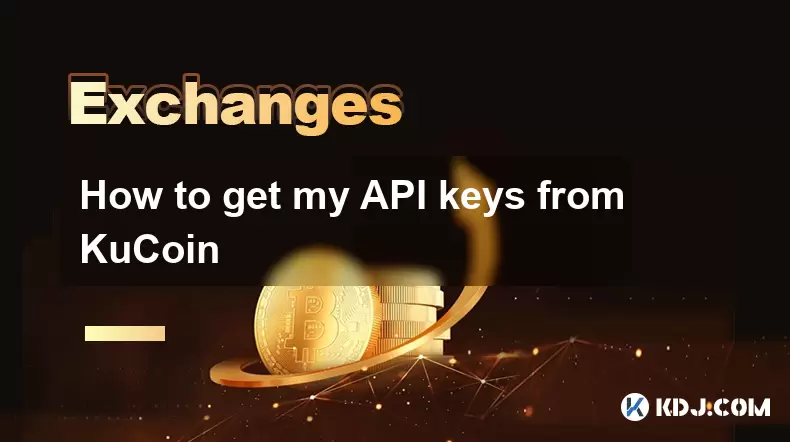
How to get my API keys from KuCoin
Aug 08,2025 at 06:50pm
Understanding API Keys on KuCoinAPI keys are essential tools for users who want to interact with KuCoin's trading platform programmatically. These key...
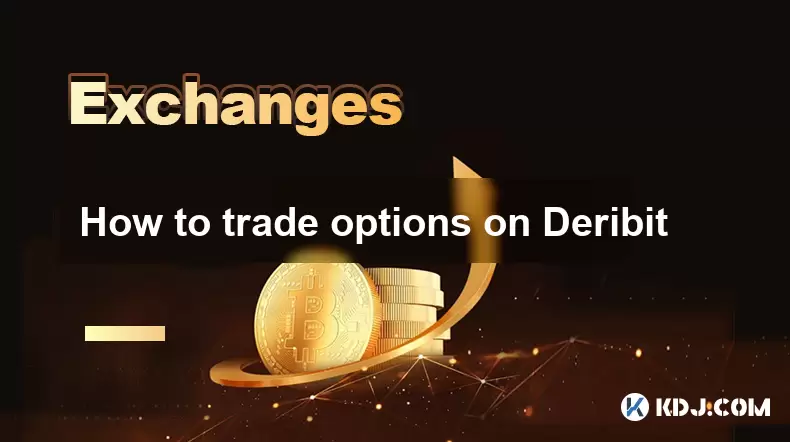
How to trade options on Deribit
Aug 09,2025 at 01:42am
Understanding Deribit and Its Options MarketDeribit is a leading cryptocurrency derivatives exchange that specializes in Bitcoin (BTC) and Ethereum (E...
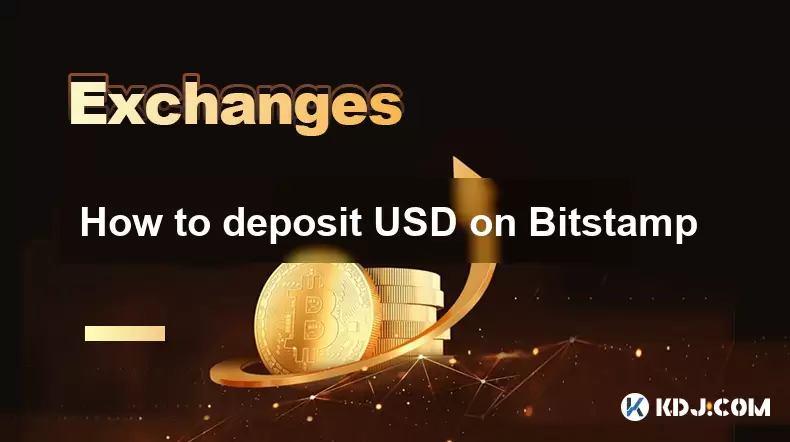
How to deposit USD on Bitstamp
Aug 07,2025 at 05:18pm
Understanding Bitstamp and USD DepositsBitstamp is one of the longest-standing cryptocurrency exchanges in the industry, offering users the ability to...

How to use margin trading on Poloniex
Aug 08,2025 at 09:50am
Understanding Margin Trading on Poloniex

How to use advanced trading on Gemini
Aug 08,2025 at 04:07am
Understanding Advanced Trading on GeminiAdvanced trading on Gemini refers to a suite of tools and order types designed for experienced traders who wan...

How to use advanced trading on Gemini
Aug 08,2025 at 10:56pm
Understanding Advanced Trading on GeminiAdvanced trading on Gemini refers to the suite of tools and order types available on the Gemini ActiveTrader p...

How to get my API keys from KuCoin
Aug 08,2025 at 06:50pm
Understanding API Keys on KuCoinAPI keys are essential tools for users who want to interact with KuCoin's trading platform programmatically. These key...

How to trade options on Deribit
Aug 09,2025 at 01:42am
Understanding Deribit and Its Options MarketDeribit is a leading cryptocurrency derivatives exchange that specializes in Bitcoin (BTC) and Ethereum (E...

How to deposit USD on Bitstamp
Aug 07,2025 at 05:18pm
Understanding Bitstamp and USD DepositsBitstamp is one of the longest-standing cryptocurrency exchanges in the industry, offering users the ability to...
See all articles

























































































